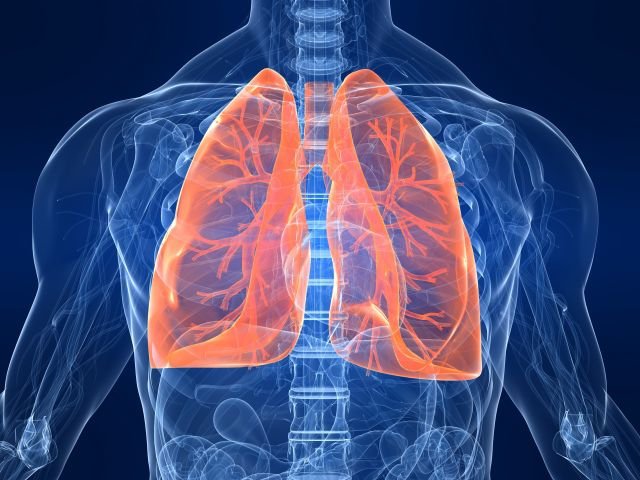A world-first study by researchers from the Centenary Institute and the University of Technology Sydney (UTS) reveals why people with chronic obstructive pulmonary disease (COPD) are at higher risk of developing severe Covid-19.
Published in the American Journal of Respiratory and Critical Care Medicine, it’s believed the findings could help the development of new therapeutic interventions to reduce Covid infection in COPD patients.
Speaking about the study, Dr Matt Johansen from the Centenary UTS Centre for Inflammation says that after examining the genetic information of infected cells through single-cell RNA-sequencing analysis they found that seven days after infection “there was a 24-fold increase of viral load” in the airway cells of those with COPD compared to the airway cells of healthy individuals.
Significantly, the team found that the infected COPD cells had increased levels of transmembrane protease serine 2 (TMPRSS2) and cathepsin B (CTSB).
These are enzymes that the SARS-CoV-2 virus uses to enter the host cell.
“These two enzymes are increased in COPD patients and favour greater SARS-CoV-2 infection compared to healthy people,” says Dr Johansen.
“Simply put, easier and increased cell infection makes it far more likely that individuals with COPD will have more severe disease outcomes.”
Other results from the study showed additional reasons for COPD patients’ susceptibility to severe Covid-19.
Key anti-viral proteins (interferons) that protect against infection were largely blunted in the COPD patient airway cells. This was a likely trigger in causing increased viral production in COPD patients.
Dr Johansen says that infected COPD patient airway cells also had higher levels of pro-inflammatory cytokines, which are linked to more severe Covid-19 and COPD outcomes.
“COPD is an inflammatory disease with patients having increased inflammation at baseline compared to healthy people. It’s highly likely that SARS-CoV-2 exacerbates this existing high inflammation level which leads to even poorer outcomes,” says Dr Johansen.
Initial laboratory drug testing by the researchers, to inhibit the enzymes TMPRSS2 and CTSB, and target the high inflammation levels, successfully and substantially reduced SARS-CoV-2 viral levels in COPD patient cells, ultimately confirming the study’s results.
“Collectively, these findings have allowed us to understand the mechanisms of increased Covid-19 susceptibility in COPD patients,” says Professor Phil Hansbro, the study’s senior author and Director of the Centenary UTS Centre for Inflammation.
“We believe that new drug treatments targeting relevant enzymes and pro-inflammatory responses in SARS-CoV-2 infection could have excellent therapeutic potential in reducing the severity of Covid-19 in patients with COPD.”
Professor Hansbro says the research is critical with hundreds of millions of people affected by COPD globally and with Covid-19 likely to be around for many years to come.










